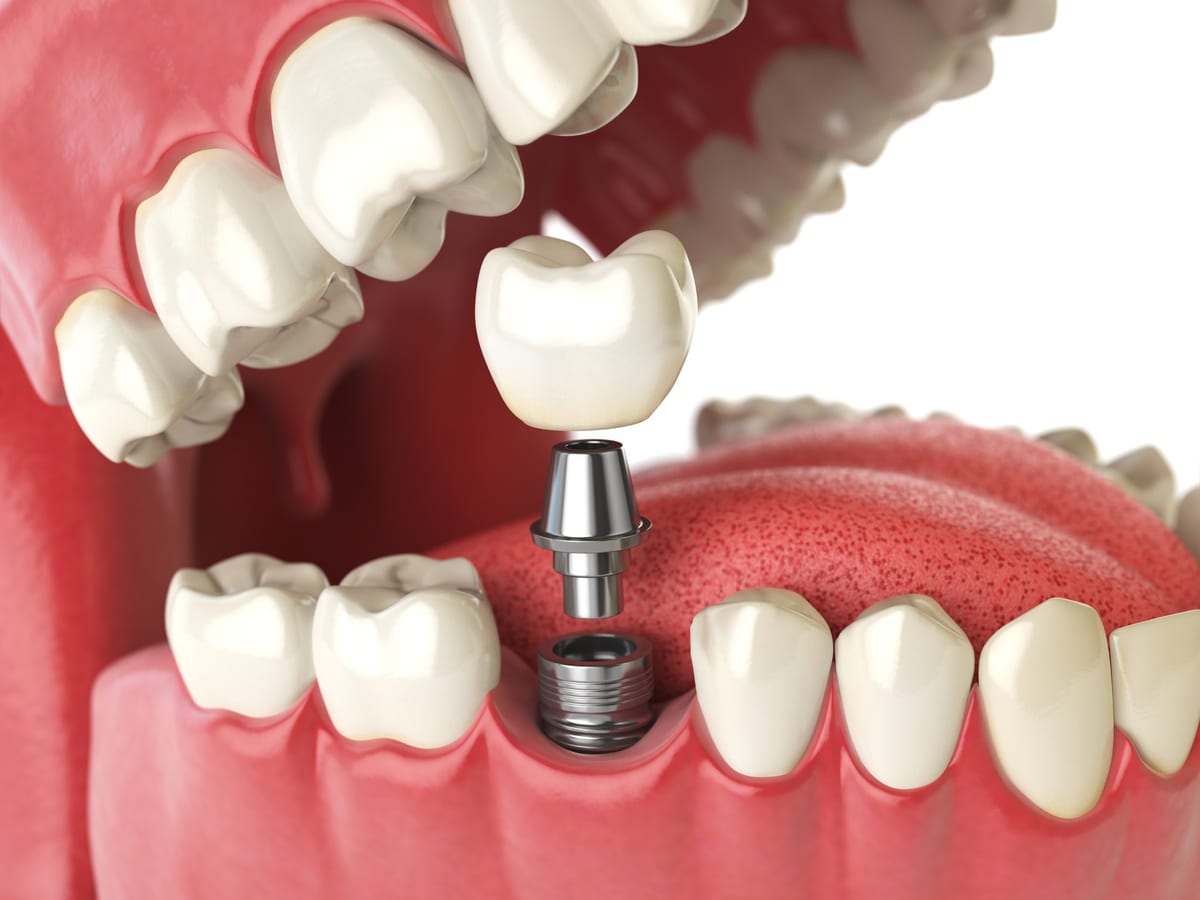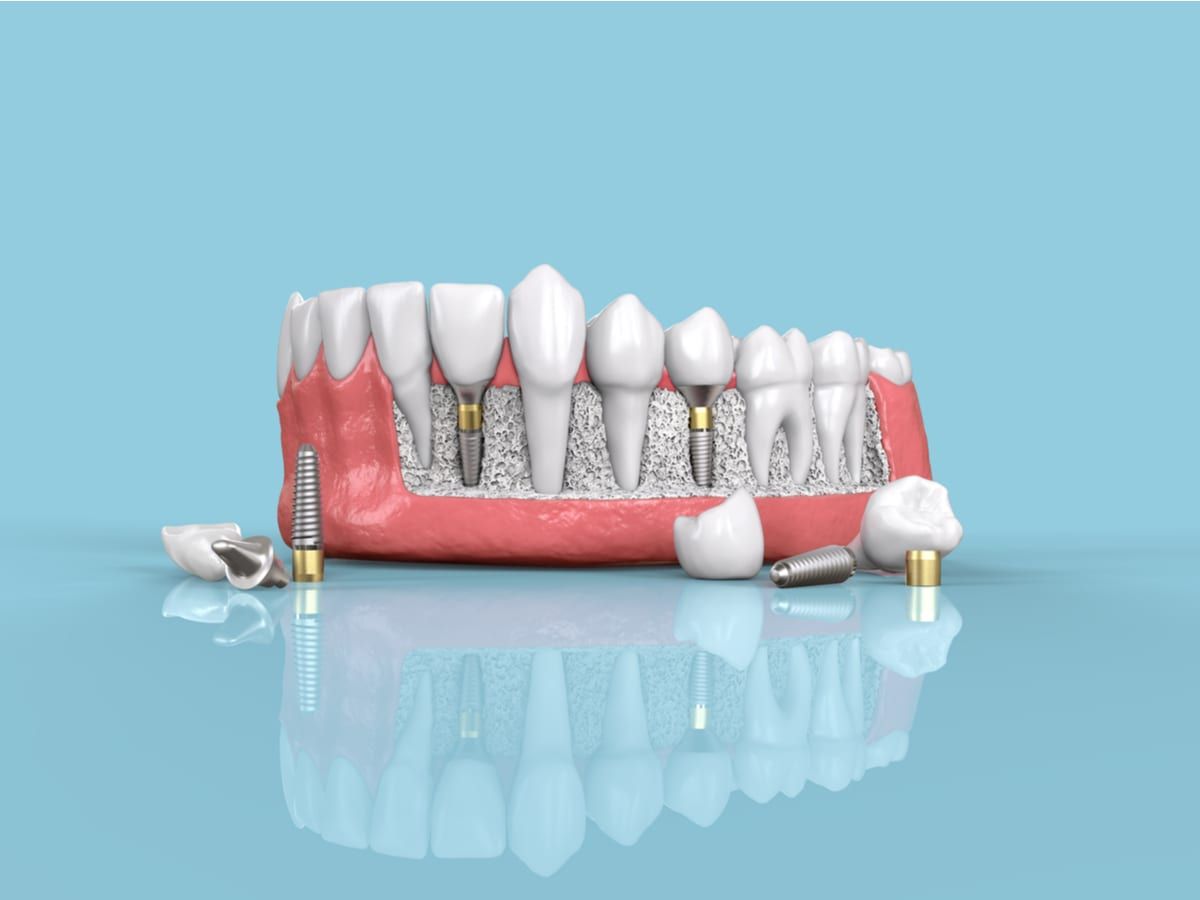Dental implants are a fantastic piece of dental replacement technology that has made it possible to restore natural speaking and chewing function to patients. Implants are a form of denture that is held in place using titanium posts and screws that are secured in the patient’s jaw. Replacement teeth are mounted on these points securely and often only need to be removed during the patient’s twice-yearly exam. The condition of your jawbone and style of implant both have roles to play in how dental implant surgery is performed. One of the most important benefits of getting dental implants is that the posts stimulate new bone growth. This bone growth secures the posts in place so they can serve as a solid mount for your new dentures.
Why Get Dental Implants?
Dental implants serve the same purpose for your replacement teeth as the roots did for your natural teeth. The posts and screws are made of titanium, a metal that is known for its ability to stimulate bone growth. The growing bone ensures that the posts are solidly in place, preventing damage to the bone and ensuring your dentures don’t slip. The materials from which your implants and replacement teeth are made can’t corrode and decay like your natural teeth, making them superior to bridges.

Are Dental Implants Right For Me?
There are a growing number of cases where dental implants are the right choice for patients seeking restoration or replacement dental treatments. You may qualify for dental implant surgery if:
- You have one or more missing teeth.
- Your jawbone has reached its full growth.
- Your jawbone is healthy enough to accept implants,
- Or you can receive a bone graft that makes it robust enough to do so.
- Your oral health is excellent.
- No existing health conditions will prevent your bone from healing correctly.
- You cannot or will not wear dentures.
- You want to restore speech ability impaired by lost teeth.
- Can commit several months to the healing process.
- Don’t smoke tobacco.
What Risks Are Associated With Dental Implants?
Any medical procedure has some level of risk associated with it. Dental implant surgery is no exception to this rule, though problems occur rarely. When problems do occur, they are often easy to treat and minor in nature. Associated risks include:
- Infection that occurs at the site of the implant.
- Surrounding structures take damage or become injured, such as teeth or blood vessels.
- Damage to the nerves resulting in numbness, pain, or tingling in the teeth, lips, gums, or chin.
- Problems with your sinuses caused by implants protruding into your sinus cavity.
How Do I Prepare For Dental Implant Surgery?
The period leading up to your surgery may involve visits to multiple specialists. Among them may be an oral and maxillofacial surgeon who specializes in oral conditions, a periodontist for your gums and bones, a prosthodontist for your teeth, and in some cases, an ENT (Ear, Nose, and Throats) specialist. Dental implants can involve multiple surgical procedures, and a proper evaluation must be done in preparation. These include:
- Medical History Review: Any medical conditions you are currently experiencing and the medications you are taking must be reported to your dentist. These include prescription and OTC drugs and herbal supplements. Orthopedic implants and some heart conditions may make it necessary for antibiotics to be administered.
- Comprehensive Dental Exam: Full imaging using 3D X-Rays must be done, and models made of your jaw and teeth. This is in addition to the standard elements of a typical dental exam.
- Treatment Plan: This is a specially prepared plan that takes into all of the accounts discovered during the previous steps. It will include the number of teeth to be replaced and the condition of the surgery area.
If you’re looking into dental implants as your solution for missing teeth, give our office a call for a consultation. You’ll be given a full dental exam, and your dentist will discuss your options for dental implant surgery with you based on the results.


